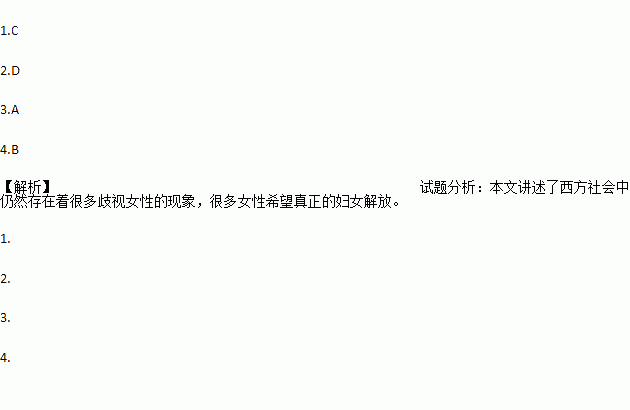题目内容
A large number of women in Western European countries wish that they were born men. The number is said as high as 60% in West Germany. “Women often wish that they had the same chance as men have, and believe it is still men’s world,” said Dr James Holden, one of the scientists who did the study.
Anne Harper has a very good job for an international oil company. She also believes in “Women’ s Liberation(解放)”. “I don’t wish that I were a man,” she says, “and I don’t think many women do. But I do wish that people would stop looking down upon us women. At work, for example, we often do the work that men do but get paid less. There are still a lot of jobs that are usually the best ones and open only to men. If you’re a man, you have a much better chance of leading an exciting life. How many women pilots are there ... or engineers or scientists?”
1.What can we learn from the first paragraph?
A. 60% women in West Germany wish that they were born men.
B. Most women in Western European countries wish that their babies were all boys.
C. 60% Western European women wish that they were born men.
D. 60% Western European women who wish that they were born men are from West Germany.
2.“It is still men’s world.” means “______.”
A. There’re more men than women in the world
B. There’re more men scientists or engineers than women scientists or engineers in the world
C. Women have not been given the same chance as men
D. Women cannot live without men
3.Anne Harper considers that women should ______.
A. be well paid B. live a better life than men
C. be really liberated D. get better jobs than men
4.Anne Harper doesn’t wish that she were a man because she ______.
A. has got a very good job
B. isn’t looked down upon by anyone
C. does the work that a man can’t do
D. believes in “Women’s Liberation”

